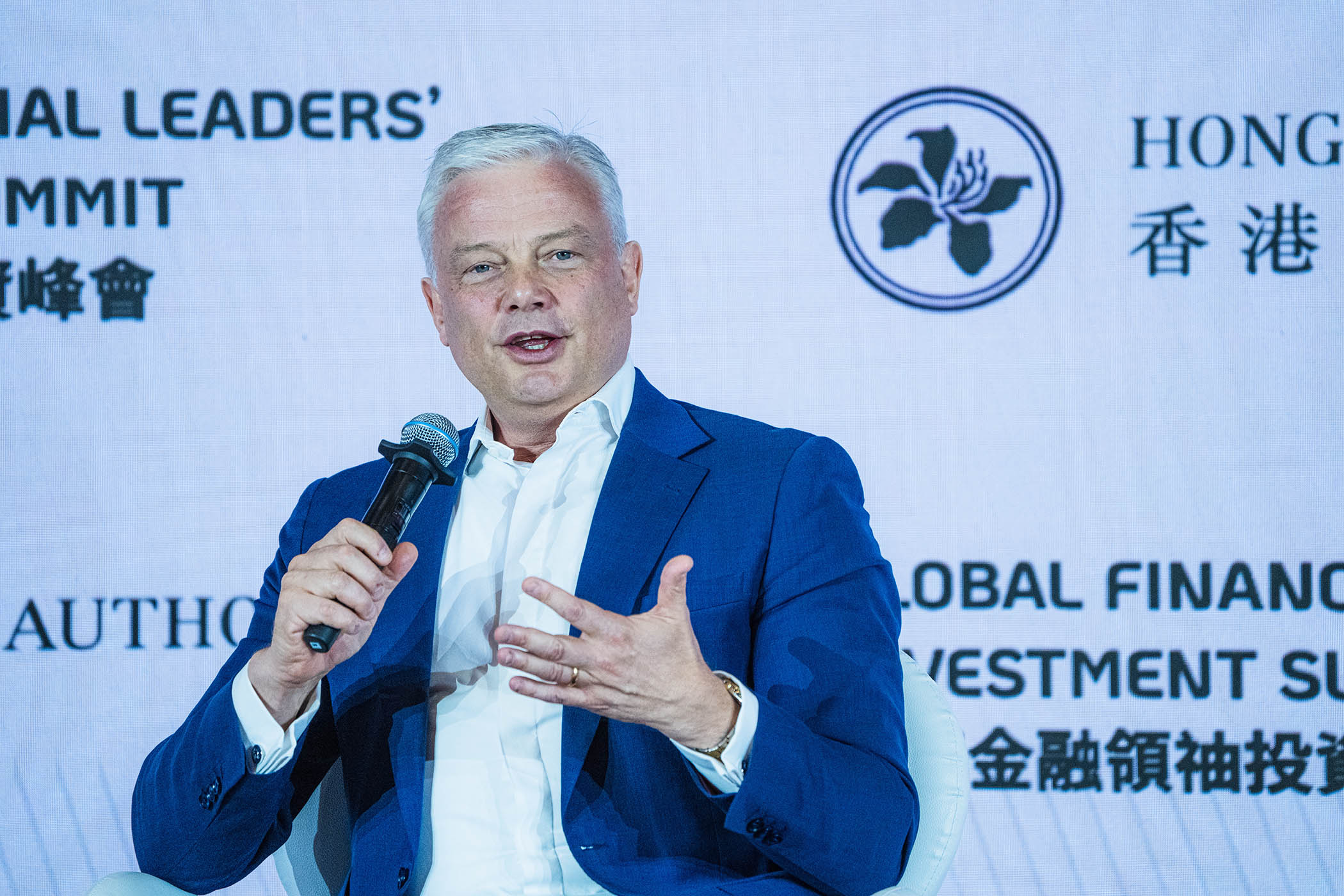Photograph by Andy Hall
Karoli Hindriks has always been a fan of the fluorescent. In 1999, aged 16, she started a student company that sold reflectors for pedestrians – fashionable accessories by day and lifesavers by night. Soon after, she took the advice of her father and created a patent, securing her the title of Estonia’s youngest-ever inventor.
These days Hindriks is in the booming – albeit less fluoro – business of immigration paperwork. As founder and CEO of Jobbatical, a platform that automates the visa application process for businesses seeking overseas employees, she has a particular perspective on how talent is flowing around the globe.
Sitting on the roof terrace of The Observer office, she admits it’s not a “sexy topic”. But, at a time when fears of a brain drain loom over the US under president Donald Trump and Britain’s politicians are transfixed with raising barriers to entry, there’s no question our conversation is timely. “It’s insane. What do you think the difference is between skilled worker visa fees in Germany and the UK?” she asks.
The answer is that the total in Germany for a long-stay work visa plus a residence permit is €175 (£147), while in the UK the cost of a three-year skilled worker visa, including application fee and immigration health surcharge, is £3,874 a person. Last week The Observer revealed that certain UK science institutions were spending up to £800,000 a year on visa fees.
Despite this disincentive, the number of UK businesses applying for sponsor licences is through the roof, rising by more than 44% in the past year to August, according to data obtained by Jobbatical via a freedom of information request.
And it’s not just UK businesses on the hunt, Hindriks says: “The world is in the biggest talent shortage in human history. Globally, this is a huge problem and it’s growing. By 2030, it’s estimated, the skilled worker shortage will cost companies and governments $8.5tn.”
Where is all that talent going to come from? According to consultancy Korn Ferry, the only country with a skilled talent surplus in 2030 will be India, as a vast, young and tech-savvy population comes of age.
The UK, along with Germany and the US, will be coping with “significant” deficits of talent greater than 600,000 workers by that point, while parts of South America and south-east Asia are likely to see “acute deficits” of 12m to 18m.
‘I’m very spoiled, because Estonia has an amazing user experience. Everything just works’
‘I’m very spoiled, because Estonia has an amazing user experience. Everything just works’
Karoli Hindriks
Hindriks saw a hockey stick opportunity. In 2019, Jobbatical pivoted from a recruitment agency into a platform that streamlines relocation processes for companies and employees. It has since helped to relocate 15,000 workers to 43 cities and raised €20m from investors and angels, including Inventure, Union Square, Swiss Post, Karma VC, Metaplanet, and Devotion.
Newsletters
Choose the newsletters you want to receive
View more
For information about how The Observer protects your data, read our Privacy Policy
It’s fitting that Hindriks, an advocate of borderless living, grew up in Estonia under Russian occupation. After her initial luminescent success, she moved into post-Soviet entertainment, helping to launch seven TV channels, including National Geographic and MTV. In another life, she says, she would have been a dancer and claims she could “beat any CEO in the world at dancing the can-can”.
She then studied at the Singularity University, a business training organisation near Silicon Valley, where she had the idea to create a business focused on talent flows. In 2016 she was summoned with other founders to a meeting with Estonia’s president. She took the opportunity to pitch a policy that would facilitate remote work and travel for foreign visitors for up to 12 months. A few years later, the digital nomad visa was born. More than 60 countries have now adopted some form of it, including Spain, Portugal and Croatia.
Last summer, after years of helping others move, Hindriks moved to London – and was struck by the difference in bureaucracy: “In a way, I’m very spoiled, because Estonia has an amazing user experience. Everything just works. In terms of governance it’s like being on Instagram. You click a few times and you’ve voted in the parliamentary election. You click a few times and your taxes are done.”
Hindriks is pushing UK politicians to seize the tools to make skilled immigration easier. She quotes research from the economist Enrico Moretti, which found that every high-skilled tech job has the potential to create a further five jobs in services. But holding their attention in this political climate is hard. The time may have come for another eye-catching idea.



